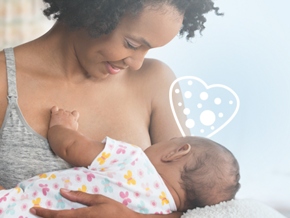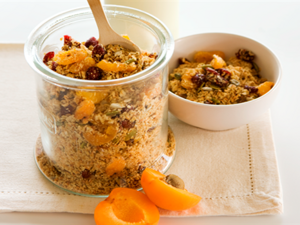
32 Weeks Pregnant - Trimester 3
Your baby is still developing as you head into the final lap, but it’s mostly perfecting and polishing from here on out. They are getting ready to meet you!
Your Baby at 32 Weeks
Little bones are nearly finished growing and nails are in place on little fingers. Very soon their skin will lose its redness and become that lovely newborn baby pink. Your baby’s delicate skin will be put to the test both during and after birth as it will no longer be protected by the amniotic fluid. Their movements will become more and more noticeable as they will have less and less space – even for others to see! They are about 28cm long (head to bottom) and weigh about 1.8 kilograms.
At 32 weeks, your baby is around the size of a butternut pumpkin and their fingernails and toenails have grown and if they'll be born with hair they'll have some hair on their head now.
Your Body at 32 Weeks Pregnant
Have you found that your digestive system is working more slowly lately? Once again, you can direct a big thank you toward your hormones. You can help your bowels to function better and improve your general feeling of wellbeing by eating whole fruit, nuts, whole grains, and other foods rich in fibre. The end is in sight! From now on there may be an antenatal check-up every two weeks. This helps to ensure that everything is exactly as it should be with your little one.
Diet for Week 32 of Pregnancy
Pregnancy is a great time to make sure you’re getting all the vitamins and minerals you need in your diet, not just for you, but also for your growing baby. This importance will continue after the birth of your baby, to support breastfeeding. When you breastfeed your baby, they’ll get all the nutrients they need from you. The quantities of vitamins and minerals required are covered by a varied and balanced diet. Unless you have a current food allergy, there is no need to avoid foods that you think might cause an allergy, to your baby.
Tips for Week 32 of Pregnancy
Thinking about what to pack to bring to the hospital or delivery clinic? Don’t forget to include written notes about breastfeeding in your birthing plan. A lot of experts recommend breastfeeding within an hour of your delivery. Writing down your breastfeeding intentions will help hospital staff understand your wishes and offer you the support you need.





